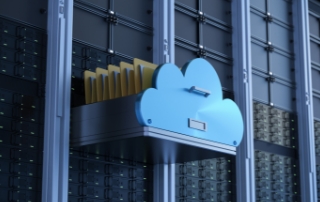Why is data backup and recovery important for businesses?
There’s nothing more frustrating than spending hours working in front of a computer on a project, only to lose all your progress due to an accident or technical error. Unfortunately, these incidents are far more common than you think, causing many teams to panic.
While the thought of losing important data can be scary, the good news is that there are ways to protect your business. One of the most effective methods is to invest in data backup and recovery solutions.
What is data backup and recovery?
Data backup is the process of creating a copy of your data in case the original is lost or corrupted. Backups are typically stored in a separate location and system to ensure that they are not lost along with the original data. Meanwhile, data recovery involves restoring fresh copies of the data to the original server or another location where it can be used.
Depending on the sensitivity of your data, you may need to perform backup procedures on a monthly, weekly, or daily basis. Your data backups can be stored in various formats, including:
- Network-attached storage – This uses a separate backup server that’s connected to your network. Authorized users on the same network can easily access and retrieve these data backups from their workstations and devices.
- External hard drives – These devices can be plugged into your computer to create a backup of your data. However, they are susceptible to theft and physical damage, and should therefore be stored in a secure location.
- Tape drive – This backup medium is a popular option for businesses that need to store large amounts of data. Tape drives work by storing data on a reel of tape, which can then be stored in an off-site and climate-controlled backup facility.
- Cloud-based backup – Cloud backup solutions store your data in the cloud, which is a network of remote servers that are accessed over the internet. This type of backup is often considered to be the most reliable, as it’s not susceptible to physical damage.
How do businesses lose their data?
To understand why you need data backup and recovery solutions, you must understand the risks your data may be exposed to. Data loss can be caused by many factors, such as:
- System failure – Hardware and software can fail at any time without warning, which may lead to file corruption.
- Human error – Careless employees can lose terabytes worth of data by mistake. For example, accidental deletion or overwriting important documents are very common ways to lose data.
- Rogue insiders – Malicious employees may abuse their access privileges to delete data in the hopes of sabotaging your business.
- Theft – If someone swipes company devices that contain locally saved files, your data may be gone for good.
- Cyberattacks – Cybercriminals may compromise your company’s data through malware attacks. Ransomware, in particular, is a type of malware that encrypts files and demands a ransom to decrypt them. Once files are infected with ransomware, your company may have no choice but to pay the ransom or lose your data permanently.
- Natural disasters – Floods, fires, and earthquakes can destroy your company’s physical data storage devices, such as hard drives and on-premises servers.
How does data loss affect your business?
Losing sensitive data can have catastrophic consequences for any business. When documents are permanently lost, your employees will have to spend a lot of time recovering and recreating the data. This can lead to reduced productivity levels and bring your business to a complete standstill. In fact, according to recent reports, the average cost of a data breach incident is $4.24 million. If your business is unable to operate due to missing data, your ability to generate revenue may also be affected.
If you fail to protect your customers’ data, they may lose faith in your business and turn to your competitors instead. In some cases, data loss can even lead to legal action being taken against your business, especially if you’re governed by data compliance regulations like HIPAA and PCI DSS. All these damages can result in your business closing its doors for good, which is why it’s so crucial to have a data backup and recovery solution in place.
What are the benefits of data backup and recovery solutions?
Implementing a comprehensive data backup and recovery solution enables your business to:
1. Defend against cyberattacks
Considering that cyberattacks have become more common in recent years, it’s now more important than ever to have a data backup and recovery solution in place. This way, even if your systems become compromised or encrypted by ransomware, you can be confident that you have clean copies of your data stored elsewhere. This way, you can essentially reverse the damage done by a ransomware attack without paying cybercriminals.
| Related reading: Find out how to fully protect your business from ransomware. |
2. Minimize downtime
Data loss can massively disrupt your business operations as employees scramble to recreate lost data. However, with data backups, you can easily restore recent copies of your data, so there’s no need to halt operations to redo lost work. In fact, high-end data backup solutions guarantee fast recovery times for critical data to maximize uptime.
3. Save money
Data loss can be an expensive issue to deal with, especially if you need to recreate lost data from scratch. Not to mention, the downtime caused by data loss can also lead to a significant loss in revenue. Having a reliable data backup and recovery solution in place can help you avoid these unnecessary expenses.
4. Improve compliance
If your business is regulated by data privacy laws, then you’re required to protect the availability and accessibility of your customers’ data. Noncompliance can cost your business thousands of dollars in fines and lawsuits.
A data backup and recovery solution can help you meet these compliance requirements. Cloud backups, in particular, will ensure that sensitive data is stored in off-site servers protected with next-gen firewalls and advanced threat detection systems. Plus, cloud solutions have full server redundancy. This means if one of your provider’s servers fails, your data will still be accessible from another backup server.
5. Maintain customer trust
When your company loses customer data, it can damage your reputation and cause customers to lose trust in your business. Implementing a well-rounded backup strategy demonstrates that you take data security seriously and assures clients that their data is in good hands.
Keep in mind that these benefits will only come to fruition if you have a data backup and recovery solution that works for your business. That’s why you need to talk to a leading managed IT services provider like Dynamic Solutions Group. We can assess your data security needs and customize a solution that’s perfect for your business. Consult with our experts today to back up your data effectively.






